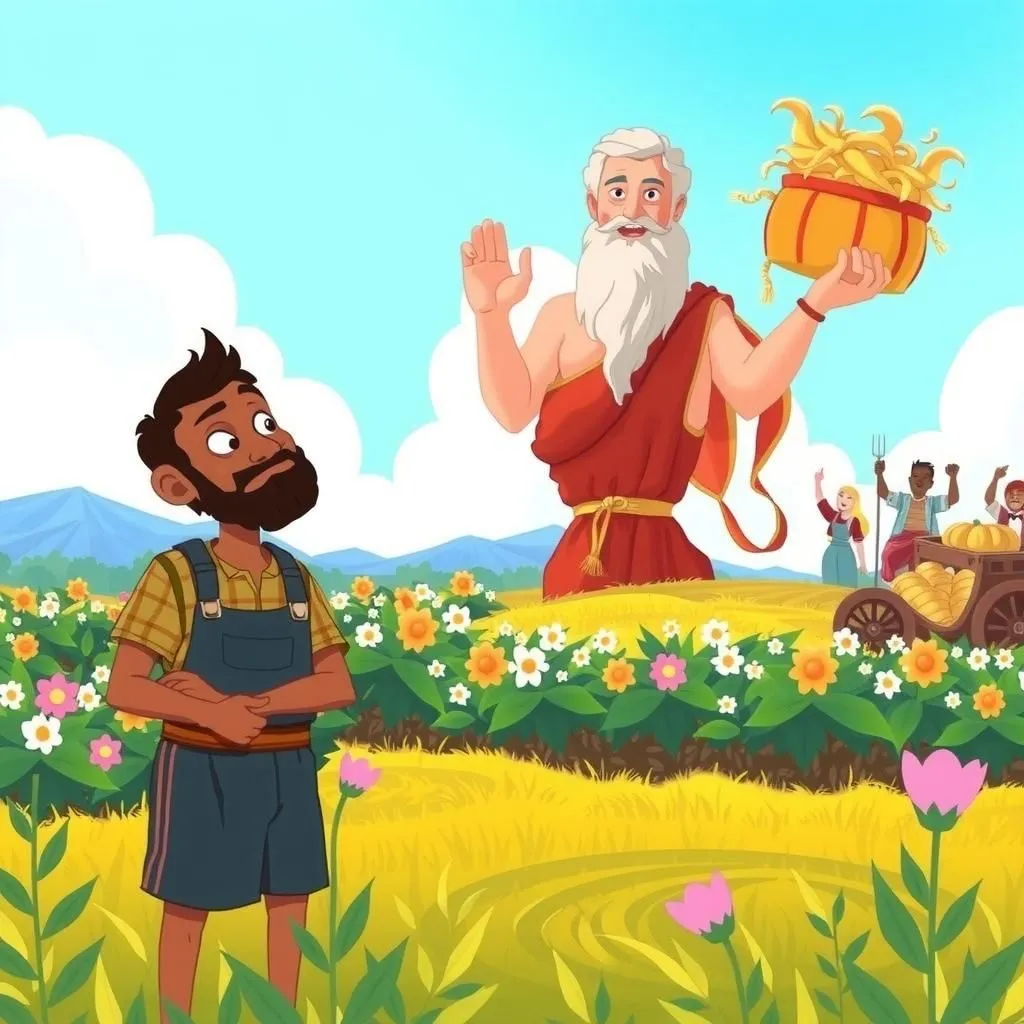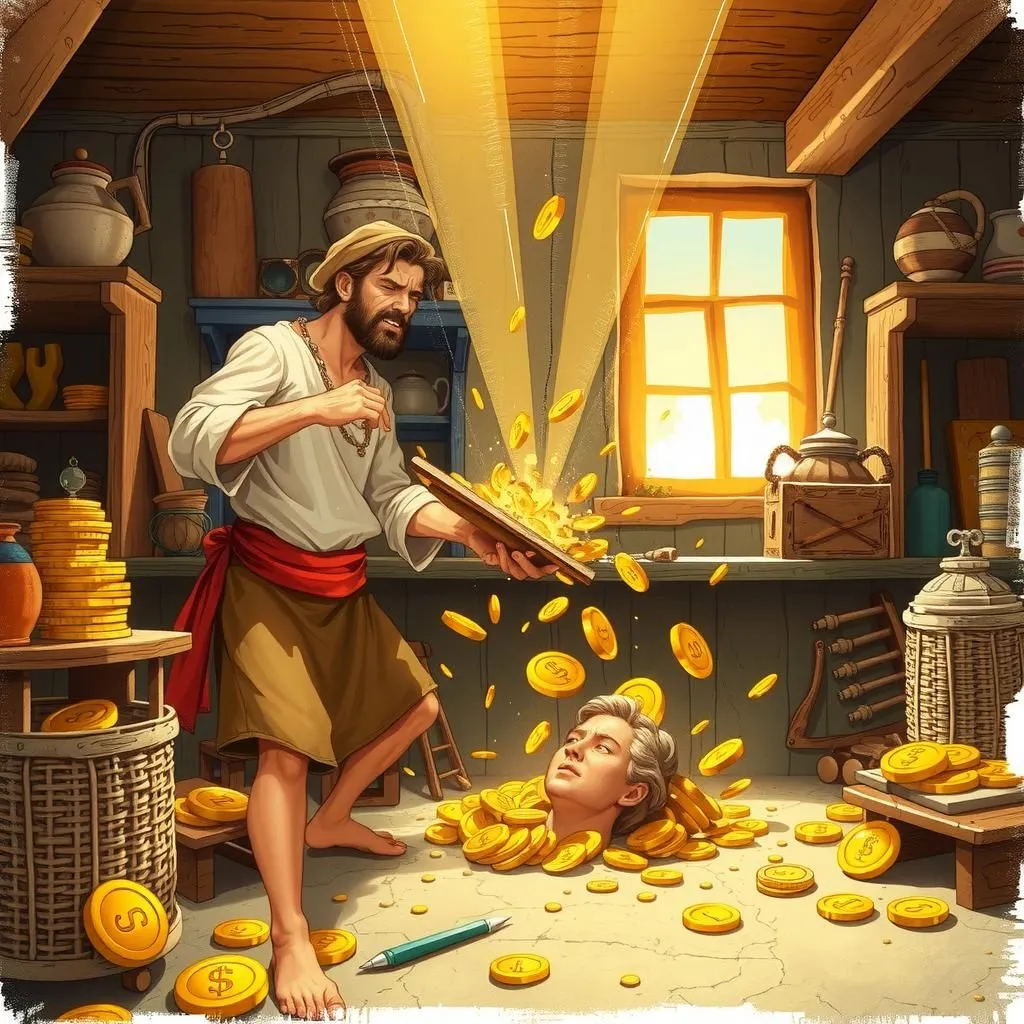
Jupiter and the Sharecropper
In "Jupiter and the Sharecropper," a prideful sharecropper learns a valuable lesson about humility when he arrogantly attempts to control the weather for a prosperous harvest, only to fail while his neighbors thrive. This uplifting moral story illustrates the importance of trusting in Providence rather than one's own hubris, ultimately conveying that true success comes from acceptance and faith. Through this meaningful story with moral, readers are reminded of the lessons learned from stories that emphasize the value of humility and reliance on a higher power.


